Skin and nail diseases caused by fungi and bacteria such as skin fungus, nail fungus, finger and foot fungus, pyoderma, irritant dermatitis, folliculitis... increase about 30% when the weather is alternating between rain and sun compared to the dry season months.
Vietnam is a tropical country, the southern region is hot all year round, from May to November is the rainy season, causing high humidity, which is more favorable for the growth of fungi and bacteria in the environment.
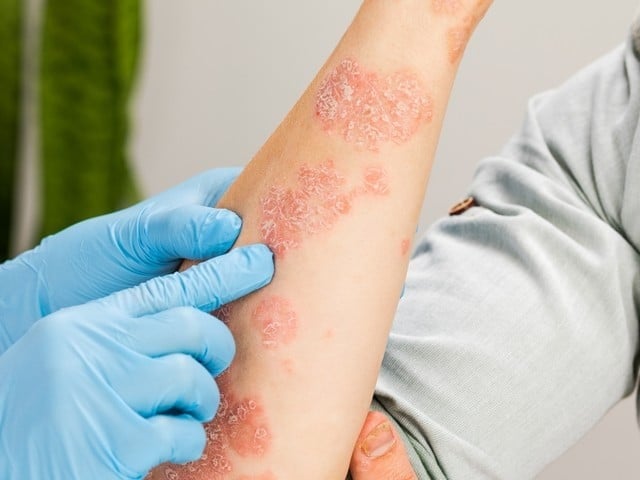 |
| Illustration photo. |
The weather is hot and sunny followed by sudden heavy rain, the temperature changes suddenly from hot to cold in a short time, which is a relatively harsh climate, harmful to the skin, making the skin more sensitive. Heavy rain accompanied by flooding, waste, garbage, dust... are mixed and stagnant, increasing the risk of skin exposure to pathogens.
When the weather is hot, the body secretes a lot of sweat to regulate body temperature, but it stays on the skin for a long time, causing the skin to be wet for a long time. Poor hygiene combined with an environment with many risk factors increases the risk of fungal infections and dermatitis.
Environmental sanitation workers, motorbike taxi drivers, construction workers, street vendors, farmers, the elderly, children, overweight or obese people, people with chronic skin diseases… are most susceptible to skin diseases at this time.
Children sweat a lot, causing areas such as the groin, buttocks, armpits, neck folds, and the back of the hands and feet to be poorly ventilated and damp, making them more susceptible to fungal infections, prickly heat, acne, impetigo, and dermatitis. In particular, these diseases cause a lot of itching, and children have difficulty controlling the itching, so they scratch, making the condition worse.
Every day, the dermatology and cosmetic skin department of a general medical facility in Ho Chi Minh City receives 25-30 cases of skin and nail diseases caused by fungi and bacteria due to erratic weather and flooding.
Dr. Dang Thi Ngoc Bich, head of the Dermatology - Cosmetic Dermatology Department, Tam Anh General Hospital, Ho Chi Minh City, said that if not treated promptly, the child's skin can become red, swollen, pus-filled, oozing, infected (infected with other bacteria and viruses), skin necrosis, easily causing scarring, and increased pigmentation. More seriously, it can affect the whole body, causing infection, blood poisoning, glomerulonephritis, etc.
Although cases of skin fungus and dermatitis are not life-threatening, the symptoms of severe itching and patchy skin, if not treated properly, the lesions will spread and can cause eczema (chronic atopic dermatitis), affecting the psychology and quality of life of the patient.
Depending on each patient's condition, the dermatologist will prescribe topical or systemic medication appropriate to the type of fungus or bacteria the patient has.
Patients need to return for check-ups according to the doctor's appointment schedule to adjust the appropriate medication for each stage of the disease. When there are unusual symptoms on the skin (especially after being exposed to rain or flooding), such as red patches, acne on the skin, dry, itchy skin; or thick, discolored nails; peeling skin and itching between fingers, palms, soles of feet, etc., they should go to a medical facility with a dermatology specialist for proper diagnosis and treatment.
Patients should not self-diagnose, self-medicate, or use other people's prescriptions, apply leaves, or pick at pimples, which can make the disease worse or even cause complications due to using the wrong medicine.
Fungal skin diseases and dermatitis are easily re-infected due to tropical climate conditions. Therefore, Dr. Bich recommends that patients avoid contact with water sources, dirty soil, chemicals, and keep skin and nails dry.
People in areas prone to flooding should wear rubber boots and rubber gloves when in contact with dirty water sources. If you have to wade through rainwater, you should immediately wash your body with antibacterial shower gel when you get home, dry your hands and feet, and dry your shoes and raincoat before reusing them.
People with skin fungus and dermatitis should wash their clothes and blankets separately; regularly clean their masks and helmets; and dry their clothes in the sun so that the ultraviolet rays in the sunlight can kill the fungus and fungal spores. Nail clippers used by people with fungus should also be used separately and cleaned with soap.
Sometimes human ringworm is transmitted from pets such as dogs and cats through direct contact. Treating your pet for ringworm can help prevent infection.
For children, especially newborns, in addition to always keeping their skin dry, parents can use zinc-containing creams and powders to prevent diaper rash and fungus.
In Hanoi , according to Dr. Pham Thi Minh Phuong, Head of the Examination Department, Central Dermatology Hospital, recently, the Central Dermatology Hospital has received many cases of foot fungus, toenail fungus, groin fungus... dermatitis due to infection. The number of patients has increased by 30% compared to the dry season.
One thing worth warning is that patients often have the habit of self-treatment, listening to friends' advice to use different types of medicine, but in reality, skin diseases are very diverse, each type of disease has different medicine. Therefore, many people treat incorrectly by applying leaves, soaking leaves, or going to the hospital when there are complications due to using medicine of unknown origin.
In addition, some people like to soak and apply leaves but do not know that this will cause irritation, dry skin, cracking, and even ulcers. If the patient is not treated, the condition will worsen, leading to complications such as itching, ulcers, discharge, swelling, heat, and redness.
Regarding treatment, Dr. Phuong emphasized that when people have skin problems, they need to find a dermatologist for early treatment. People need to change their habits during the rainy season, such as not wearing damp socks or damp shoes, which can cause inflammation of the intertriginous area due to fungus and bacteria; they must have the habit of cleaning their body every day; they should not go to random doctors, but need to go to the right doctor and get the right treatment.
To prevent skin diseases, people in flood-affected areas need to pay attention to environmental hygiene, ensure hand and foot disinfection, and use protective equipment such as boots and rubber gloves when in contact with dirty water sources to avoid contact with disease-causing factors.
If you have to wade through rainwater, you must clean it when you get home, dry your hands and feet, and dry your shoes before using them again.
Source: https://baodautu.vn/cac-benh-ve-da-tang-do-thoi-tiet-d223358.html





![[Photo] Hanoi morning of October 1: Prolonged flooding, people wade to work](https://vphoto.vietnam.vn/thumb/1200x675/vietnam/resource/IMAGE/2025/10/1/189be28938e3493fa26b2938efa2059e)




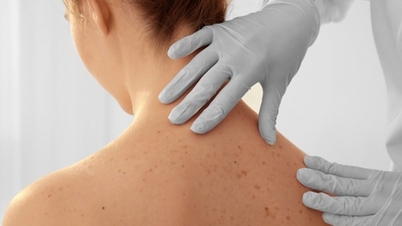

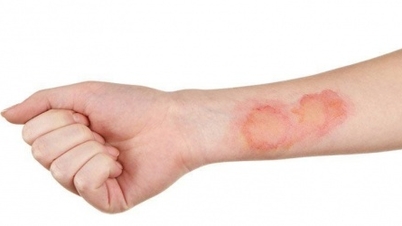



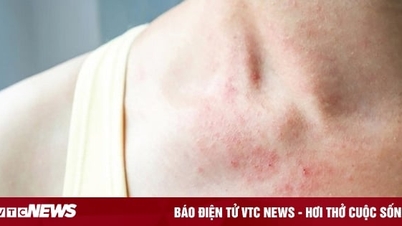

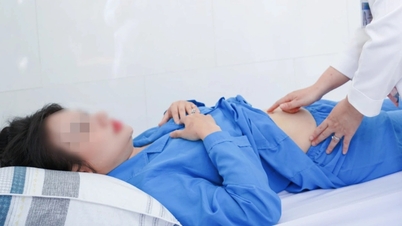






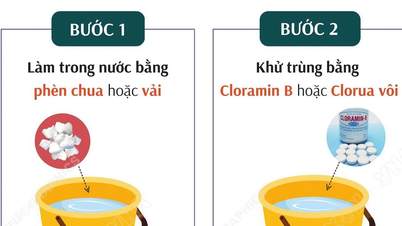











![[Photo] The 1st Congress of Phu Tho Provincial Party Committee, term 2025-2030](https://vphoto.vietnam.vn/thumb/1200x675/vietnam/resource/IMAGE/2025/9/30/1507da06216649bba8a1ce6251816820)
![[Photo] Panorama of the cable-stayed bridge, the final bottleneck of the Ben Luc-Long Thanh expressway](https://vphoto.vietnam.vn/thumb/1200x675/vietnam/resource/IMAGE/2025/9/30/391fdf21025541d6b2f092e49a17243f)
![[Photo] President Luong Cuong receives President of the Cuban National Assembly Esteban Lazo Hernandez](https://vphoto.vietnam.vn/thumb/1200x675/vietnam/resource/IMAGE/2025/9/30/4d38932911c24f6ea1936252bd5427fa)




















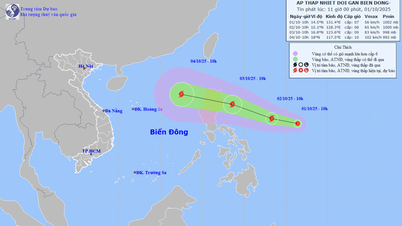



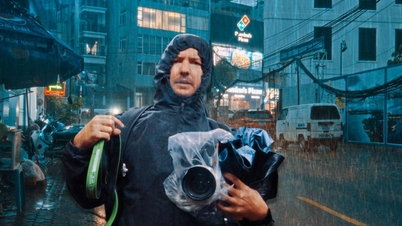
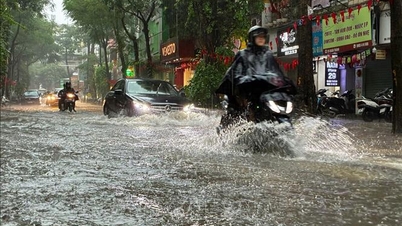



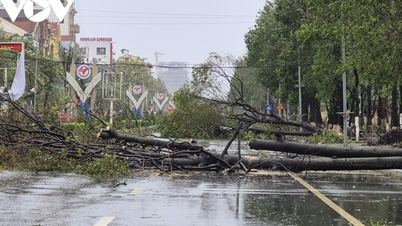








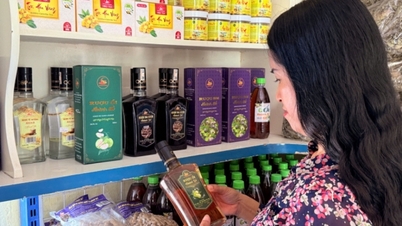

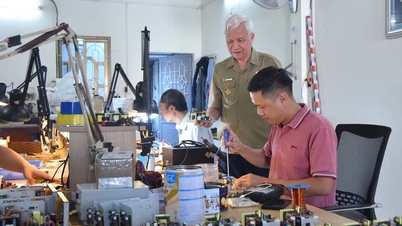













Comment (0)